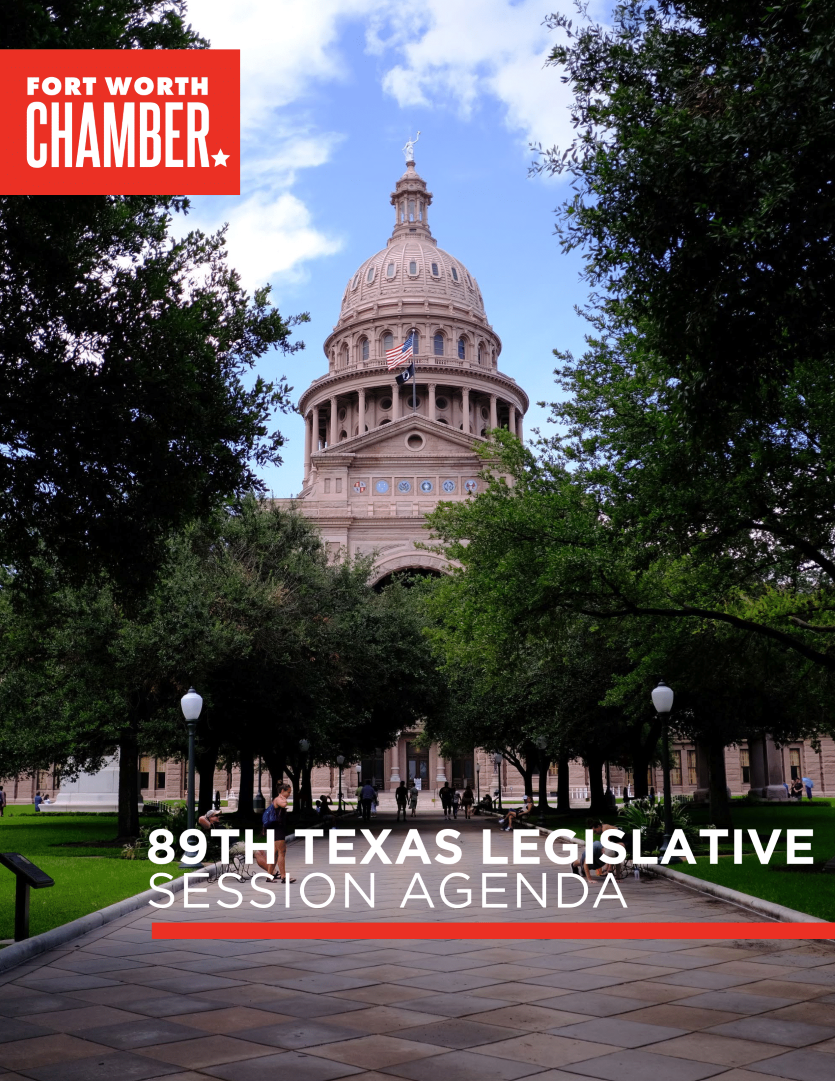The Fort Worth Chamber of Commerce supports policies that promote and enhance the overall vitality and prosperity of the Texas economy. The policy priorities articulated here are deliberately broad, intended to champion the voice, vision, and interests of our diverse Chamber members, their businesses, employees, and customers.
To achieve these outcomes, the FWC will proactively engage our elected officials and other policymakers to advocate for the enactment of policies that align with these priorities, while resisting proposals that we believe would directly harm our members, undermine our economic competitiveness, or tarnish our reputation as a pro-business community.
At all times, we aim to influence the policy discussion in a respectful, open, and ethical manner.






